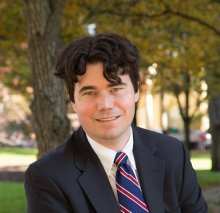“Ripping Yarn: Experiments on Storytelling by Partisan Elites,” Andrew Gooch, Yale

AMERICAN POLITICS & PUBLIC POLICY WORKSHOP
Abstract: This paper explores the role of personalized storytelling by partisan elites using a content analysis and two experiments. By personalized storytelling, I mean a political message in the form of a narrative that includes a specific reference to an individual affected by an issue. Using a content analysis of party convention speeches, I show that presidential candidates tell an increasing amount of stories over time, particularly from 1980 onward. Through randomized experiments using a general population sample, I demonstrate that personalized stories have a unique influence on the public by parsing out the independent causal effect of the storyteller’s partisanship, the personalization of the story, and the content of the story. Not only can stories change attitudes about issues, but personalized stories can also change how individuals evaluate the candidate telling the story. An impersonal story that only references a generic group, rather than a singular individual, does not improve the partisan storyteller’s favorability. Results suggest that modern presidential candidates might be motivated to tell more stories because personalizing an issue may improve their standing with the public.
Andrew is a Postdoctoral Associate in the Institution for Social and Policy Studies and the Center for the Study of American Politics. He is also teaching three seminars in the Department of Political Science during the 2017-2018 academic year. He completed his Ph.D. in political science (American politics and quantitative methodology) at the University of California, Los Angeles in 2015. His research interests include voting behavior, political communication, public opinion, campaigns and elections, policy representation, experimental methodology, and the survey sciences.